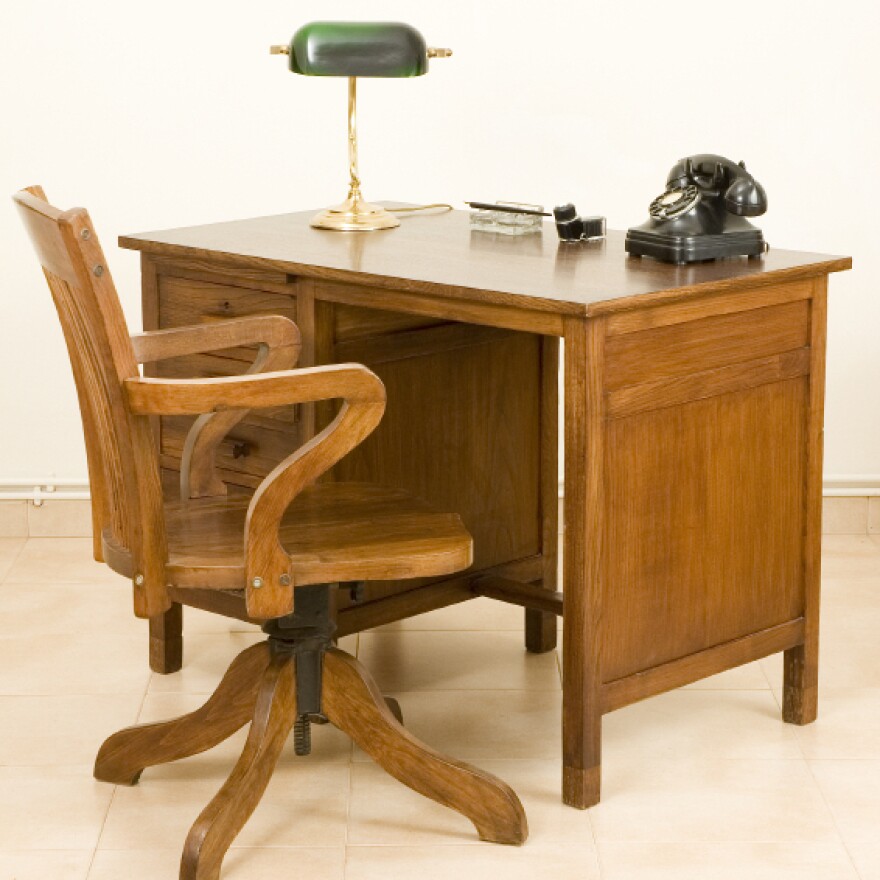With the disappearance of the desktop computer and the downfall of the desk phone, could we be seeing the demise of the office desk?
"We still need a place on which to set all that digital stuff," says Henry Petroski, a civil engineering professor at Duke University and author of numerous design books, including The House with Sixteen Handmade Doors: A Tale of Architectural Choice and Craftsmanship.
Henry says his iPad is too heavy to hold comfortably. "And I don't have a large enough lap for all the other devices." So for Henry, an office desk is an extension of his lap. For others, it's a repository for inboxes and outboxes and books and paper piles and a smattering of old business cards grown dusty and dogeared from neglect.
And now the Great American Desk — trying to be all things to all people — is going through an identity crisis. And a multifaceted metamorphosis.
Recent desk developments include:
* The Superdesk — a sweeping platform that flows through the office in New York.
_____
* The Kinetic Desk — from , "senses your presence" and encourages you to sit and stand throughout the day.
_____
* The Pull-Up Bar Desk — just one of the unofficial innovations at the Active Collaborative Workspace in Somerville, Mass.
_____
Did this new Age of Deskovery begin, perhaps, with predictions of a "paperless office" in the 1990s? "The paperless office was said to arrive with the desktop computer," Henry Petroski says. "I am still waiting ..."
The Protojournalist:Experimental storytelling for the LURVers — Listeners, Users, Readers, Viewers — of NPR.@NPRtpj
Copyright 2021 NPR. To see more, visit https://www.npr.org. 9(MDAxNzg0MDExMDEyMTYyMjc1MDE3NGVmMw004))







